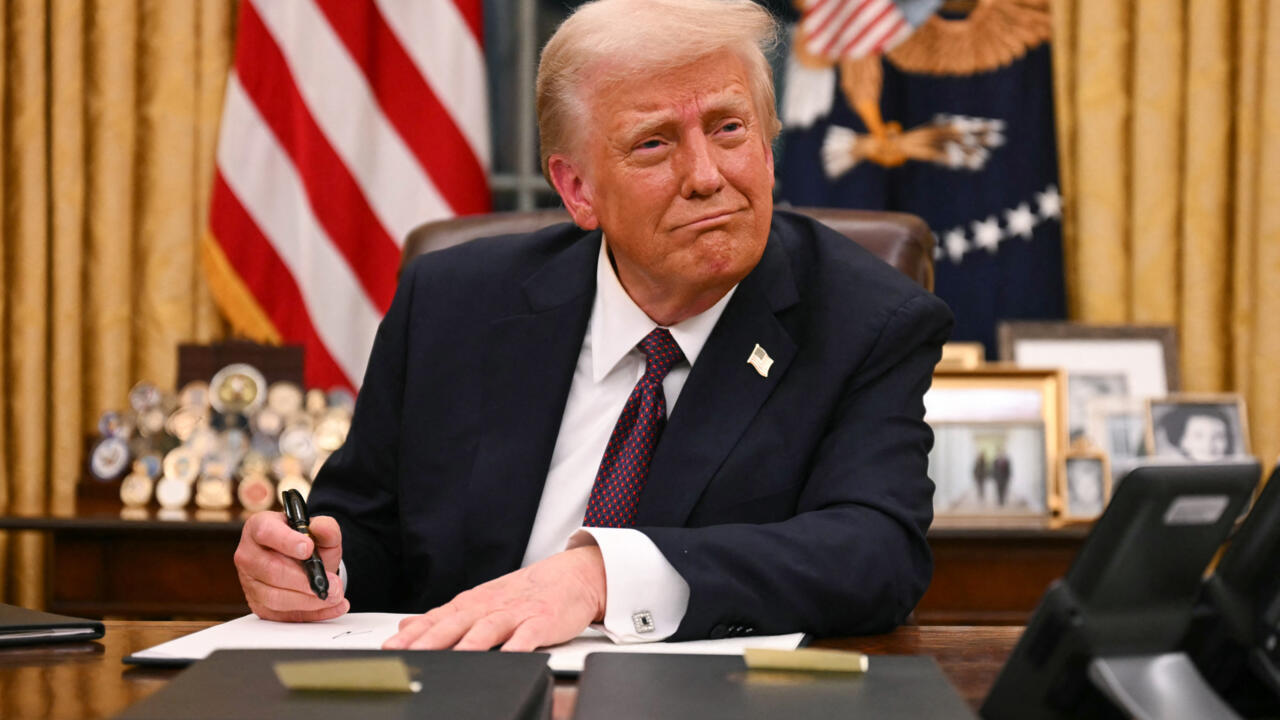US aid cut: Nigeria needs robust strategy, not ad hoc committee
The ‘America First’ mantra evoked by United States President Donald Trump has emerged with bold and gigantic scissors positioned to cut the huge government aid to other nations. Sub-Saharan Africa, taken together as a huge enclave ravaged by poverty, hunger and disease, will be hard-hit. Already the United States Agency for International Development (USAID) has […]

U.S. President, Donald Trump
The ‘America First’ mantra evoked by United States President Donald Trump has emerged with bold and gigantic scissors positioned to cut the huge government aid to other nations.
Sub-Saharan Africa, taken together as a huge enclave ravaged by poverty, hunger and disease, will be hard-hit. Already the United States Agency for International Development (USAID) has put its staff on what has been tagged ‘administrative leave’, as the bureaucracy in Washington works out how to implement the unexpected and difficult policy.
With the new measures, the US is pulling off its toga of generosity that earned the North American country enormous respect and made the rest of the world to bend over backward to accommodate America’s dispositions on almost all social, economic and geopolitical fronts.
Like many other countries, Nigeria, which received as much as $1.3 billion (about N2.1 trillion) from USAID in 2023, is thrown off-balance. The policy will create a yawning gap in the treatment for HIV/AIDS, tuberculosis, and malaria. From a thematic perspective, USAID’s interventions in Nigeria go beyond healthcare for the vulnerable population. Its programmes tackle issues like food security and agricultural vigilance, trade and economy, water sanitation, global health, cardinal among which is HIV treatment.
Perhaps, the aspects of the aid cut that triggers an alarm is the treatment for HIV. From available data, Nigeria is one of the countries in the world with a high rate of HIV infection. As of 2023, there were approximately two million persons living with HIV. They received free antiretroviral drugs under the US President’s Emergency Plan for AIDS Relief (PEFRA Initiative (PEPFAR).
With the cut in US aid, this huge population that has survived from the US generosity will face a worsening and unmanageable health condition. As a fire brigade measure, the federal government has set up an ad hoc committee of the ministers of health, finance, and environment and approved $1 billion for healthcare sector reforms and allocated an additional $3.2 million to procure 150,000 HIV treatment packs over the next four months.
The government’s instant response to Trump’s shock is commendable. At least, it reassures Nigerians living with HIV that in the next few months they can access their packs. It raises a critical question, however, in the administration of government aid, that is whether the US support for the country for decades has been effective. The effectiveness of aid programmes is measured by three factors – ownership, capacity, and sustainability. It is in answering the question: what happens when the aid stops coming? In terms of ownership, one may ask, were Nigerians (beneficiaries of the aid) involved in the decision about the kind of treatment those living with HIV needed, or was it the American authorities that decided on the kinds of support to provide? In terms of capacity, after decades of the management of HIV through US support, do we have Nigerian health personnel who can take over the roles played by American health experts? The most important of the three measures of effectiveness is sustainability. Can Nigerians now locally produce HIV treatment drugs to cater for those living with the virus?
These questions are not very difficult to answer. If the first two are answered in the affirmative, the one on sustainability may not, because over the years, the government has not funded research into local treatment of HIV. For malaria, there are many pharmaceutical companies that produce local medicines to treat them, but Nigeria has been leaning on the World Health Organization (WHO) and the West for the production of vaccines that could prevent malaria and tuberculosis.
In terms of pharmaceutical drugs, countries like India, China, Pakistan, South Korea who were aid-dependent have exited that bracket. They have graduated to producers and exporters of pharmaceutical drugs, but the authorities in Nigeria have failed to invest in local production of pharmaceutical drugs for common ailments. Even where the outcomes of local research endeavours produce flashes of hope, local funding to deepen such efforts are lacking, leaving our research institutes with a lot of discoveries whose potential are never realised.
It follows, therefore, that as a country, Nigeria has not achieved sustainability in areas that it has benefited from development and international aid, in spite of decades of support from USAID, World Bank, the International Monetary Fund, WHO, and other developed countries. The government agencies, used as vehicles for the implementation of aid programmes, enjoyed the donations in foreign currencies and gained fat bank accounts, but slumbered over the critical element of sustainability of the projects.
The Trump policy is not just a wake-up call. It cannot be tackled by an ad hoc committee. We call for a robust government response that will bring together experts in various fields to brainstorm on how the country could be weaned out of being aid-dependent to a giver of aid to poorer countries. South Korea, which was at the same level with Nigeria in per capita income in the 1970s, for instance, is executing aid projects in Nigeria. We must learn from such countries. All hands must be on deck to deal with this situation. We must harvest the contributions of local philanthropists in our efforts to come out as a beggar country. Nigeria must not survive by aid alone.
